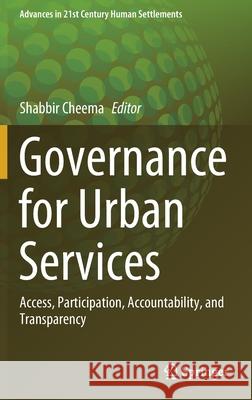Governance for Urban Services: Access, Participation, Accountability, and Transparency » książka
topmenu
Governance for Urban Services: Access, Participation, Accountability, and Transparency
ISBN-13: 9789811529726 / Angielski / Twarda / 2020 / 330 str.
Governance for Urban Services: Access, Participation, Accountability, and Transparency
ISBN-13: 9789811529726 / Angielski / Twarda / 2020 / 330 str.
cena 201,72
(netto: 192,11 VAT: 5%)
Najniższa cena z 30 dni: 192,74
(netto: 192,11 VAT: 5%)
Najniższa cena z 30 dni: 192,74
Termin realizacji zamówienia:
ok. 16-18 dni roboczych.
ok. 16-18 dni roboczych.
Darmowa dostawa!
Kategorie BISAC:
Wydawca:
Springer
Seria wydawnicza:
Język:
Angielski
ISBN-13:
9789811529726
Rok wydania:
2020
Wydanie:
2020
Numer serii:
000772098
Ilość stron:
330
Waga:
0.66 kg
Wymiary:
23.39 x 15.6 x 2.06
Oprawa:
Twarda
Wolumenów:
01
Dodatkowe informacje:
Wydanie ilustrowane











